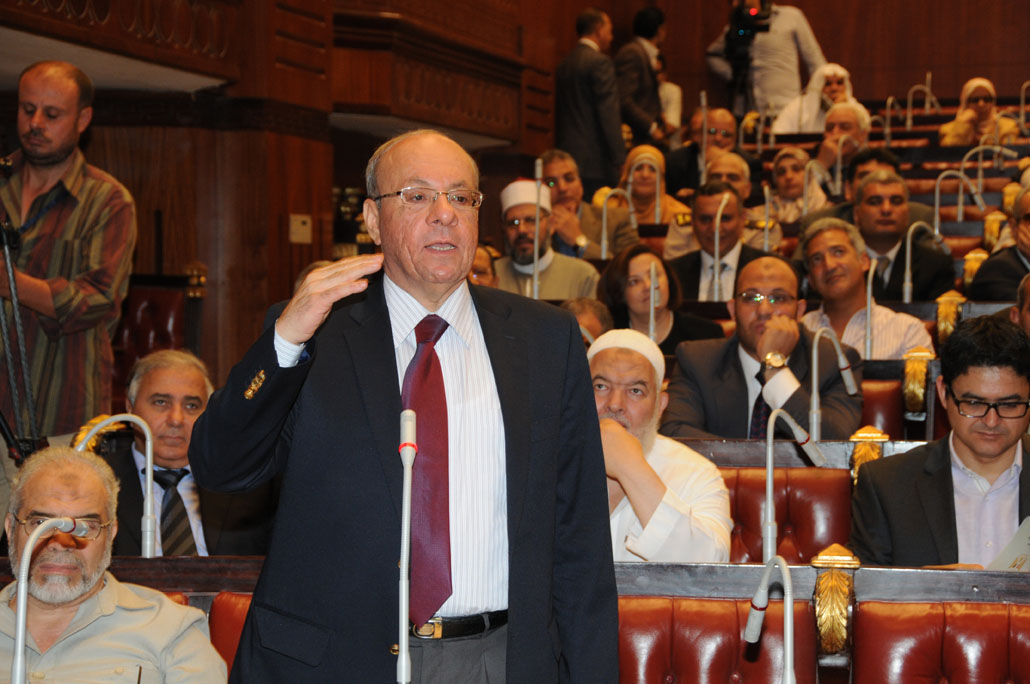The Egyptian Cabinet, chaired by Prime Minister Mostafa Madbouly, approved a one-year extension for foreigners residing in Egypt illegally to regularise their status during its meeting on Wednesday. This decision follows guidelines outlined in the Prime Minister’s Decree No. 3326 of 2023.
The Cabinet also approved several key decisions related to strategic projects and international agreements.
The Cabinet classified the Suez Warehousing Company, an Egyptian joint-stock company, as a strategic project, granting it access to expedited approval processes. This project, located in the Shogai’a district of the Suez Governorate, will involve designing, constructing, operating, maintaining, and managing a strategic warehouse on approximately 13.3 feddan. The warehouse is part of a larger plan to establish strategic warehouses across Egypt, aimed at securing strategic goods, monitoring inventory, and identifying new supply needs. The project emphasises the transfer and localization of advanced technologies to Egypt by providing services to the logistics sector using cutting-edge scientific and technological advancements, including 24/7 monitoring of commodities. The project aims to attract both international and Egyptian companies in e-commerce and specialised logistics services, offering them high-density storage solutions.
Additionally, the Cabinet approved a similar classification for the Suez Wind Energy Company, another Egyptian joint-stock company. This project involves designing, constructing, operating, and maintaining electricity generation and energy plants from various sources, including distribution networks. The project spans two land plots in the Red Sea Governorate, in the Gulf of Suez and Jabal Al-Zeit regions, covering a total area of 195.3 square kilometres. The project prioritises environmental considerations, sustainable natural resource management, and reducing carbon emissions. It aims to generate 4.9 million megawatts of clean wind energy annually, reducing approximately 2.1 million tons of carbon dioxide emissions per year. The project also focuses on transferring and localising advanced technologies in the operation and manufacture of wind turbines and expanding the use of artificial intelligence in developing control equipment, monitoring operations, and maintenance techniques. This project aims to increase the share of clean energy in the national electricity grid and reduce reliance on natural gas for electricity generation, thereby contributing to increased Egyptian natural gas exports and boosting the country’s dollar reserves.
The Cabinet approved a draft presidential decree on the financing agreement for the INTERREG NEXT MED regional cross-border cooperation program for 2021-2027. The program, which aims to enhance economic and social development in Mediterranean Basin countries, including Egypt, will see several Egyptian governorates participating. Egypt actively participated in the program’s previous phase (2014-2020), implementing 26 projects. The current phase involves collaborative projects between Mediterranean Basin countries and the European Union in various sectors, including sustainable tourism, cultural heritage, creative industries, digital transformation, agriculture, blue economy, education, energy, and green construction.
The Cabinet also approved a draft presidential decree on Egypt’s accession to the Makkah Al-Mukarramah Agreement, signed by member states of the Organization of Islamic Cooperation, for cooperation in enforcing anti-corruption laws. This step aims to integrate Egypt into international efforts to combat corruption and enhance the enforcement of anti-corruption laws. It also strengthens information sharing, expertise exchange, technical assistance, and training with counterparts in signatory countries, enabling knowledge sharing on best practices for combating corruption, preventing and detecting crimes covered by the agreement (categorised into 12 categories), investigating them, and pursuing perpetrators.
The Cabinet further approved a draft presidential decree reallocating 10.3 feddan of state-owned land in South Sinai to the Red Sea Ports Authority for the construction of a tourist passenger port. This decision aims to maximise the potential of this location by transferring the land from the tourist activities sector.
Finally, the Cabinet reviewed the annual report of the General Authority for Health Accreditation and Supervision for the fiscal year 2023/24, which reflects the performance of the national comprehensive health insurance project, aligning with President Abdel Fattah Al-Sisi’s vision and Egypt’s Vision 2030 to provide high-quality services to citizens.
The report provides an executive summary of the authority’s performance, data, and statistics on various areas within its scope, including accreditation of health facilities meeting quality standards, accreditation and registration of medical professionals from various specialisations, developing and internationally accrediting quality standards for health services, supporting the self-sufficiency of medical facilities, regular administrative, technical, and clinical inspections of accredited health facilities, additional tasks performed by the authority, digitization and digital transformation, promoting health care quality culture, raising public awareness and providing information on its importance, as well as the authority’s financial status.




